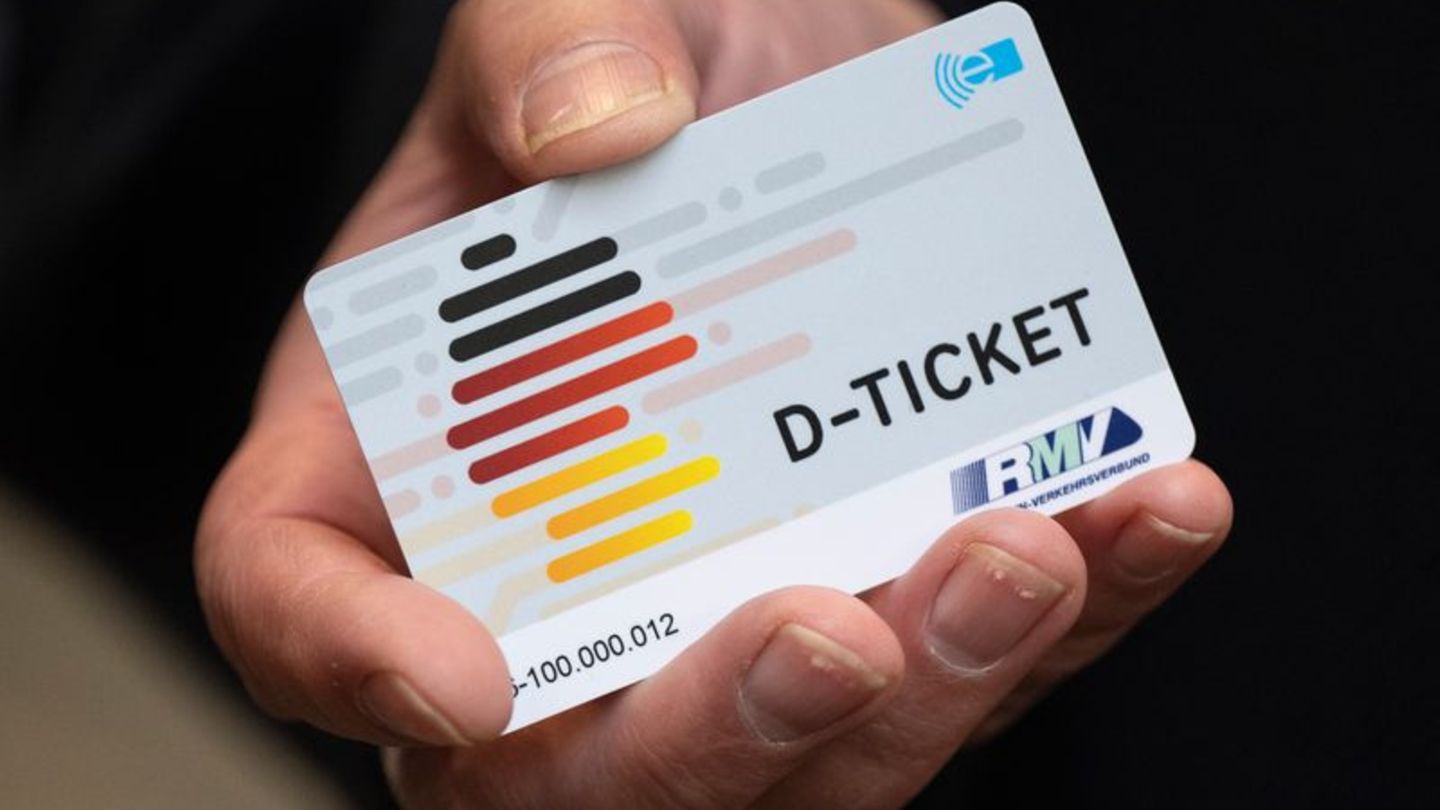The Deutschlandticket is a great success, with the federal and state governments each contributing 1.5 billion euros per year. But now the financing is shaky. The price could rise as early as October.
The transport ministers of the states are discussing the future of the Deutschlandticket at a special conference in Düsseldorf today. Because the federal government has not yet released the promised funds, there is great concern that the price of the ticket, which is valid throughout Germany, will increase this year. October 1st has been mentioned as a possible date.
The Deutschlandticket, which costs 49 euros per month, entitles you to travel on all local public transport throughout Germany. The federal and state governments subsidise the service with 1.5 billion euros each year. This is intended to cushion the transport companies’ lower ticket revenues.
The federal government had promised to transfer unused funds from 2023 to 2024. So far, however, this has not happened. This, in turn, is causing uncertainty in the industry. The transport companies are worried that they will end up having to bear the costs and that the Deutschlandticket may be discontinued.
Germany Ticket
Spectacular railway routes – you can experience these dream routes for 49 euros a month
Do individual regions have to demand more again?
“I see a great danger that an unmanageable patchwork of areas in which the Deutschlandticket can be continued and others in which it must be dispensed with for financial reasons will soon emerge,” wrote the chairman of the Conference of Transport Ministers, NRW State Minister Oliver Krischer (Greens), in a recent letter to Federal Finance Minister Christian Lindner and Federal Transport Minister Volker Wissing (both FDP). “The only option to prevent this would be to massively increase the price of the Deutschlandticket at very short notice.”
The federal and state governments had originally issued a price guarantee for 2024 – but this is shaky. “If the federal government does not move, a price increase will have to take effect from October 1, 2024,” said a ministry spokeswoman from Thuringia.
“We have been waiting for over half a year for the Chancellor to keep his word and make the unused federal funds from 2023 available for 2024,” said Bavaria’s Transport Minister Christian Bernreiter (CSU). If the law is not changed by the summer break, the Deutschlandticket will have to “become at least 10 euros more expensive this year.”
Chancellor commits to the Deutschlandticket
Chancellor Olaf Scholz recently addressed these concerns. The SPD politician called the Deutschlandticket a great achievement in a government survey in the Bundestag. He said he could assure them that the federal government would create the financial framework, as discussed with the state premiers. A necessary amendment to the regionalization law would be made.
Even if the financing for the current year can be arranged, it is unclear whether the 1.5 billion euros each from the federal and state governments will be sufficient in 2025. The Association of German Transport Companies is therefore very concerned that the ticket is not guaranteed in the long term. “It is good that the Transport Ministers’ Conference on Monday can contribute to clarity by committing to the permanent establishment of the ticket,” said VDV President Ingo Wortmann. Lindner and Wissing have so far failed to do this.
The environmental organization Greenpeace suggested investing money in public transport instead of in roads to finance the ticket. “The safest way to renovate crumbling bridges and finance the Deutschlandticket is to stop the construction of further motorways,” said Greenpeace mobility expert Marion Tiemann. “Then all resources can flow into the renovation, and there would still be enough money for a long-term secured Deutschlandticket.”
Price cannot remain constant in the long run
Lower Saxony’s Transport Minister Olaf Lies (SPD), on the other hand, assumes that the price of the ticket will have to rise because “personnel costs or energy costs” will continue to rise in the coming years. “But we need a stable and secure price,” said Lies, “if we want to achieve the climate goals and offer mobility.”
Hesse’s Economics Minister Kaweh Mansoori (SPD) said that reliability and predictability for the coming years are important for the future of the Deutschlandticket: “This is less a question of price, but of political will.”
Source: Stern
I have been working in the news industry for over 6 years, first as a reporter and now as an editor. I have covered politics extensively, and my work has appeared in major newspapers and online news outlets around the world. In addition to my writing, I also contribute regularly to 24 Hours World.




